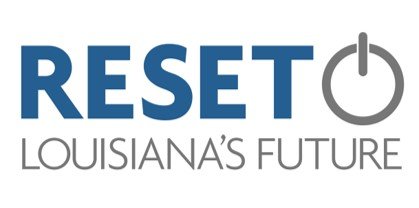BY LANNY KELLER | STAFF COLUMNIST | OCT 31, 2019 - 6:00 PM
The staid precincts of Louisiana Public Broadcasting took on a Jerry Springer air with the debate in a governor’s race that spread more heat than light.
Three unfortunate journalists were at a table between John Bel Edwards and Eddie Rispone, the candidates caterwauling at each other with only occasional nods to answering the questions posed to them.
Forget about policy. This was pure politics, and probably not a big help to undecided voters seeking to discern which candidate is the best to vote for.
Vote “for,” in fact, is itself a quaint notion. The Nov. 16 race is within weeks of being over; early voting begins Saturday. The candidates want to tell you whom to vote against, not for.
But the choice of which sneers and jeers to deploy as questions does tell us something about the race.
For Edwards, there was a curious choice of questioning about Common Core. The battle over higher academic standards in schools is over, but the governor’s question was apparently intended to suggest Rispone is a flip-flopper on an issue.
The issue is a bit of an embarrassment to Rispone: He lavishly funded for years the education reformers who backed Common Core, including Gov. Bobby Jindal; when it became a hot issue for right-wingers, Jindal flipped to opposition. In the governor’s race, as a newbie candidate, Rispone was told by consultants that he had to be opposed to it in the primary.
But the irony in Edwards raising the issue is that the governor as an ally of teacher unions was also against Common Core, although somewhat more consistently than Rispone. On that issue, the governor felt it was better to be consistent and wrong than, like Rispone, inconsistent and wrong.
What does that question tell us? Because it is likely that few voters even knew what the two were talking about, it suggests the governor’s strategy was to portray Rispone as unreliable, but it might also show a sense of desperation. For whatever small subset of voters who care, and they cannot be numerous on Common Core, each campaign is anxious to get them.
For Rispone, his strategy was clearer across a range of questions, trying to “nationalize” the governor’s race by talking about issues that agitate regular viewers of Fox News. Edwards may have been a good governor for those folks, but Rispone wants them to vote on the basis of Trump vs. Edwards.
Example: sanctuary cities. There’s no real definition of what these are, and Edwards immediately rejoined that President Donald Trump’s own Justice Department said there are none in Louisiana. But by engaging in that discussion, Rispone advances what is a reasonable strategy of trying to make the D behind Edwards’ name unattractive to Republican voters.
That these questions are not dreadfully relevant to what a governor does every day in the fourth-floor office at the State Capitol, is neither here nor there for Rispone. But the side benefit of “sanctuary cities” is that if Edwards is defending himself by invoking Trump, he may turn off some loyal Democrats who are as unhappy with the president as Republican loyalists are the other way.
The close results in recent public polls suggest a turnout race. If either candidate can get his partisans to the polls in sufficient numbers, he’ll win — and the questions in the debate showed that, as with Common Core, even small segments of the electorate are scrapped over. But it is the intensity of support among voters, many of them already telling pollsters they have decided on the governor’s race, that will determine if they show up at the polls.
So the debate’s obscurities reveal something about the governor’s race, although very little about what Edwards would tackle in a second term, or how ill-prepared is Rispone for the job if he wins.
Email Lanny Keller at lkeller@theadvocate.com.
